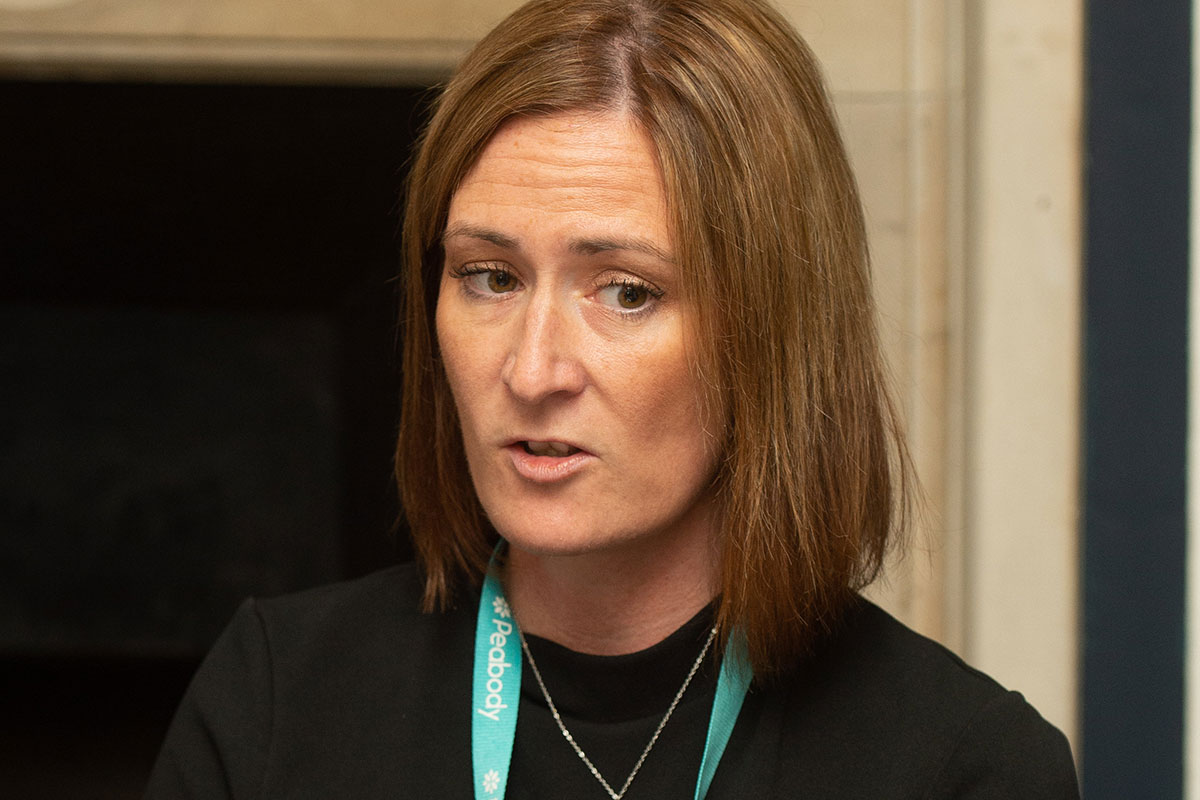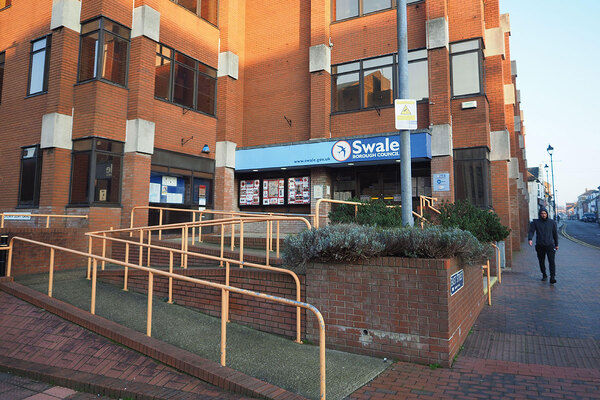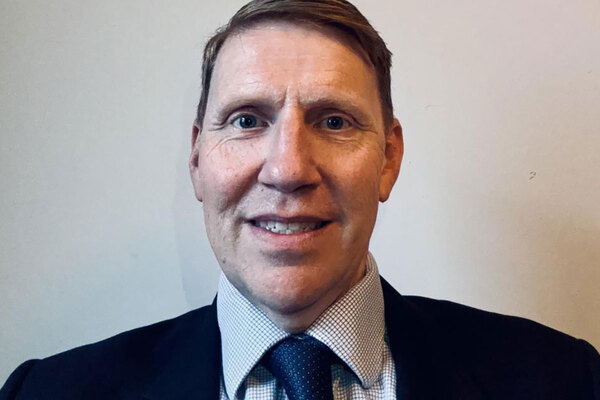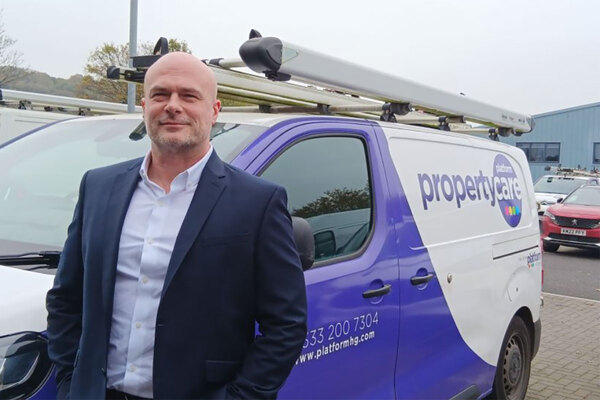Understanding your compliance strategy
How can social landlords ensure that money on compliance is being well spent and benefiting residents? Inside Housing brought together senior sector figures to discuss the issue. Photography by SWNS
In association with:

Ask Justin McCarthy (above) to characterise his board’s approach to compliance and he offers a concise answer: “restless”. As managing director of property services at Paradigm Housing Group, Mr McCarthy says an important part of his role is addressing the issue, “constantly kicking the tyres and challenging where we are” on compliance.
He does so in the knowledge that it is a never-ending process of scrutiny, learning and improvement – sometimes in the absence of clear external guidance, which makes life more tricky.
“What we’re struggling with, particularly on fire safety, is the rate at which we approach some of these issues and what truly is important and how we spend our money well,” he says. “I think a lot of people are building a war chest of cash [to address compliance issues], but [the question is] are we doing the right things?”
It is a question central to the round table debate at which Mr McCarthy is speaking. Organised by Inside Housing, and supported by Gas Tag, the event has been convened to explore the costs of compliance in the social housing sector. More specifically, panellists have gathered to consider how social landlords might ensure money in this area is being well spent, to benefit residents and improve overall safety.
They do so just a week after the publication of the Grenfell Inquiry phase one report, which has rightly renewed the spotlight on compliance and safety. It is not just board members who are restless for reassurance, as John Brett, director of resident safety at Camden Council, points out. Tenants are, too.
“Obviously it’s a very emotive issue,” says Mr Brett. “Residents want to feel safe – how do you provide that reassurance? At the moment, we’re trying to get that balance between assurance to the councillors, the senior management team, and then the reassurance back to residents.”
It is a challenge with which Susmita Sen, chief executive of Tower Hamlets Homes, is also familiar. She says there has been an increased focus on and investment in compliance for her organisation since 2015 – “we saw it as a real area of risk” – but conversations have naturally taken on a different tone post Grenfell. She points specifically to some tower block residents being keen for sprinklers to be immediately installed.
“We have nearly 130 tower blocks over six storeys. If you’re living in one of those blocks, you might want the sprinklers installed tomorrow. But what we’ve done is to engage in a sensible dialogue with residents, for example: ‘We have to prioritise, there’s not an infinite amount of money, but let’s take you through the logic, the rationale – compartmentalisation comes first before sprinklers come in.’ And by doing that, we’re in a more reasonable position.”
Joanne Tilley, executive director of corporate services at EMH Group, and Brian Reilly, director of housing at Richmond and Wandsworth councils
Engagement quickly emerges as a critical element of successful value for money compliance activity. “Residents are the best source of intelligence we’ve got on our properties,” contends Liz Oliver, interim director of compliance at Hyde Group. “We really need to get back to going out and speaking to them, and not just the frontline officers but as senior leaders – showing that commitment that we want to be out there and we want to listen to our customers.”
One of the key challenges reported by many around the table, though, is being able to have those conversations and access properties to ensure compliance – particularly with leaseholders.
It is an issue that concerns Brian Reilly, director of housing and regeneration at Richmond and Wandsworth councils. “We’ve moved on in that we try to connect with leaseholders and we will remind them of their requirements to get their boiler serviced. But it’s kind of a toothless position because we can’t enforce.
Ian Watts, executive director of assets at PA Housing
“Maybe people need to rethink the powers that we can have in terms of ensuring that our leaseholders are safe, and remembering that 50% of our leasehold stock, roughly, is now sublet. So the people that are living in there are effectively in the private rental sector, and the requirements around that I don’t think have been thought through clearly.”
It is a suggestion with which Ms Sen strongly agrees, and she feels that primary legislation is needed “to give us the ability to enforce to get that access when it comes to leaseholders”.
“These leases were drafted in the ’70s, early ’80s – I’m talking about Right to Buy stock here – and actually weren’t designed for this purpose. The thinking wasn’t where it is now. We have those enforcement powers with tenancy agreements – we don’t have the same with leaseholds.” Ms Sen is quick to emphasise that she is not “demonising” a specific type of tenure here. The problem, she says, is a “small core” who will not allow access.
Liz Oliver, interim director of compliance at Hyde Group
While a general consensus emerges that parliament must pass stronger legislation in this area – and, indeed, that central government and others need to offer a stronger steer on the key priorities to increase safety in social housing – there is also discussion about other ways of
overcoming such issues.
For Ashling Fox, chief operating officer at Peabody, part of the problem may be the way in which contractors communicate with residents about safety checks. “It’s quite an old-fashioned approach to send three letters and say: ‘This is the day we’re going to be here.’ Is it a difficult access situation, or is it a poor contractor process enforcing a time and date when maybe somebody is at work?”
And are letters effectively communicating why an inspection is so important? At PA Housing, specific efforts have been made to ensure they are, and Ian Watts, its executive director of assets, reports a positive difference as a result. “We did a bit of work with a specialist in communications in what wording went into letters about electrical inspections – why do you need an inspection, what are the benefits? Obviously for the property but for [the tenant]. And there was a real surge of access being given in response to really quite a simple little piece of work.”
Alan Core, head of assets and compliance at Housing Plus Group; Liz Oliver, interim director of compliance at Hyde Group; and John Roche, chief operating officer at Gas Tag
In Camden, meanwhile, turning away from letters and towards using the phone has made a similar difference.
“Six months ago, we had more than 800 outstanding gas visits we needed to undertake,” reports Mr Brett. “We worked with our contractor to phone people rather than just issuing letters, which helped. Then, we offered some evening appointments and Saturday appointments, which helped, and as of yesterday we have 40 properties outstanding. We’ve gone from 800 to 40 just by picking up the phone, getting in contact with people, getting a different sort of communique out.”
Knowing that it will be possible to carry out an inspection when a contractor arrives, of course, greatly increases the efficiency – and cost effectiveness – of compliance work. But can housing associations be sure of the work or check that it has been carried out, and collect reliable data on it? Many around the table say that this, too, is an area of concern. Ms Fox, whose organisation is part of the Hackitt Review ‘early adopters’ group, fears that the IT systems available to manage fire safety in particular “are wanting”. She continues: “There are systems that will collect the information but not help drive the actions through.”
Susmita Sen, chief executive of Tower Hamlets Homes
John Roche, chief operating officer at Gas Tag, is hopeful he and his colleagues may have one possible solution to such woes. Gas Tag is – as the name implies – currently focused on ensuring gas safety, but there are plans to extend it to other areas of compliance. “We’re trying to drive the behaviours of the people that you’ve got out there to do things in the right way,” explains Mr Roche. “So our Gas Tag app is not just a certification piece of software. You don’t just fill the forms in – it asks the engineer questions to try and drive the right behaviours.”
The means of establishing such behaviours, and creating a culture of safety within an organisation, is another key theme of the debate. “I’m really interested in the links between governance and setting a culture of both compliance but also value for money, and how you get that balance, and how that then filters down to the behaviours of staff,” says Joanne Tilley, executive director of corporate services at EMH Group. She speaks of that needing to come from the board and filter down, a point reinforced by Alan Core, head of assets and compliance at Housing Plus Group.
Ashling Fox, chief operating officer at Peabody
“We have a culture throughout our organisation that says safety and compliance is everyone’s responsibility. It’s corporate accountability that everyone’s got; it’s not only one individual, it’s not one team’s responsibility. Everyone plays a role,” says Mr Core.
Some express concerns about being able to get sufficiently skilled individuals in compliance, and with skills and processes within contractor organisations. But there is also a reminder that ultimately it is delivering safety, not ticking boxes to ensure compliance, which is the most important goal for every landlord.
As Mr McCarthy points out, something is only as safe “as it was at that point a certificate or risk assessment was carried out”. Compliance is, in short, an ongoing mission. And it is one of the most important ones that housing providers have to deliver.
Participants
John Brett
Director of resident safety, Camden Council
Alan Core
Head of assets and compliance, Housing Plus Group
Ashling Fox
Chief operating officer, Peabody
Justin McCarthy
Managing director of property services, Paradigm
Liz Oliver
Interim director of compliance, Hyde Group
Brian Reilly
Director of housing, Richmond and Wandsworth councils
John Roche
Chief operating officer, Gas Tag
Susmita Sen
Chief executive, Tower Hamlets Homes
Joanne Tilley
Executive director of corporate services, EMH Group
Ian Watts
Executive director of assets, PA Housing


















